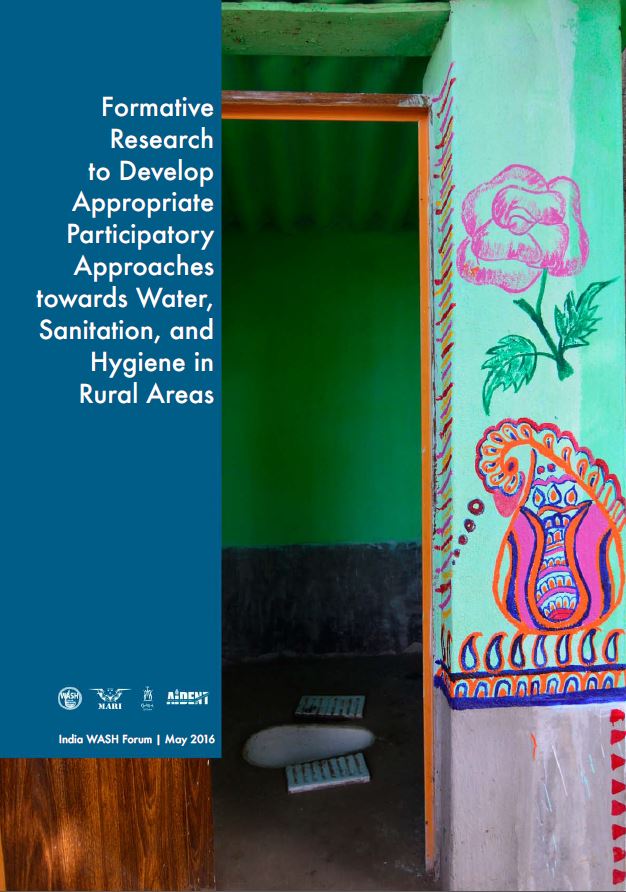Formative Research to Develop Appropriate Participatory Approaches towards Water, Sanitation, and Hygiene in Rural Areas
 |
report May 2016 ; 62 pages
Aut. Kapur Depinder &
Ed. India WASH Forum - Delhi
Downloadable format: PdF
Downloadable from the publisher
Editor Presentation
Abstract:
Most sanitation promotion approaches are only partially successful in providing short term increases in sanitation coverage and usage. BCC messages designed as marketing interventions often fail to address deeper underlying causes of resistance behind people’s reluctance to adopt improved and safe sanitation and hygiene. This study was undertaken with the objective of understanding perceptions, barriers, and motivators for improved sanitation behavior in rural India. Rural communities are not homogenous; they are also very divergent across the mountains, plains, deserts and coastal areas of India with mixed caste, tribal and Dalit composition. The study investigates how different disaggregated sets of people respond to the same questions on barriers to sanitation – women, men, adolescent girls and boys, children, old and infirm, tribal and non-tribal communities, village level functionaries, etc. The study was conducted in Gujarat, Telangana, and Jharkhand. An intensive field research was undertaken in nine villages between July and December 2015.
Target Audience:
Keywords: |
CLTS Community-led Total Sanitation (CI) (DT) (ET) , hygiene (CI) (DT) (ET) |
Country: |
Publisher/Broadcaster: |
|
India WASH Forum - Delhi - India |
If there is a broken link, we will be pleased to receive a message: communication@pseau.org